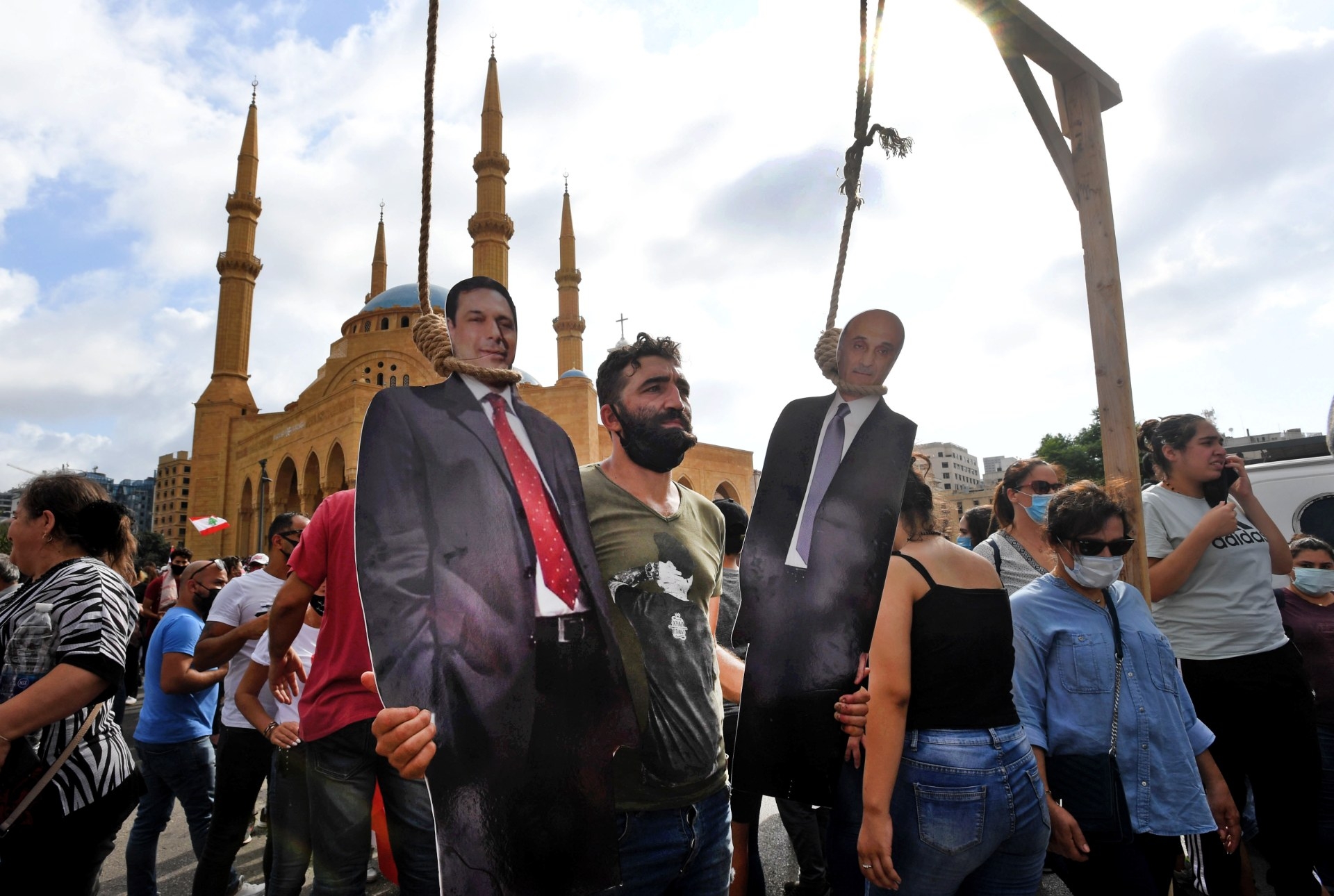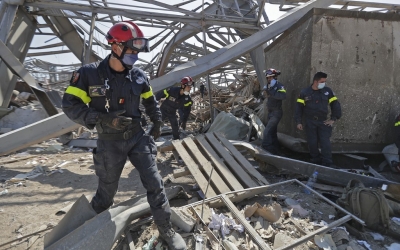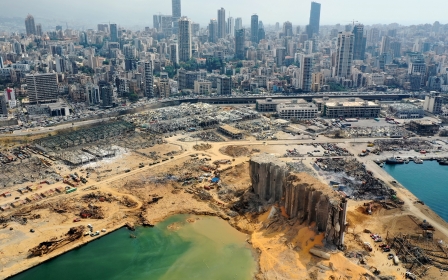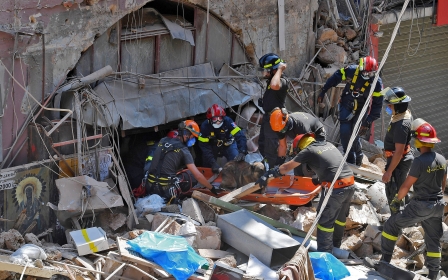Beirut explosion: Lebanon's PM Hassan Diab 'to announce government resignation'

Lebanon's Prime Minister Hassan Diab is to announce the resignation of his government in the wake of last week's deadly explosion at Beirut's port, several media outlets reported on Monday.
Diab is set to address the country at 7.30pm Beirut time.
Four ministers have already resigned, including Finance Minister Ghazi Wazni and Justice Minister Marie-Claude Najm on Monday.
The decision was made in a cabinet meeting, during which it was expected that more ministers would resign. Diab had so far rejected calls to step down, but pressure had been growing following the blast on Tuesday that tore through Beirut, leaving at least 160 dead and causing vast material damage.
Lebanon was rocked by protests over the weekend, far angrier and more violent than those against the political elite seen regularly since October. Protesters are calling for President Michel Aoun to step down too.
New MEE newsletter: Jerusalem Dispatch
Sign up to get the latest insights and analysis on Israel-Palestine, alongside Turkey Unpacked and other MEE newsletters
The cabinet - ostensibly a technocratic formation but backed by Hezbollah and its allies - was formed in January following three months of popular protests against Lebanon's corrupt political elite.
At least nine lawmakers have also announced they would quit the government in protest, as have two senior members of the Beirut municipality.
Tuesday's blast, which was felt from as far as the island of Cyprus, more than 250km away, was recorded by the sensors of the American Institute of Geophysics (USGS) as having the power of a magnitude 3.3 earthquake.
It was triggered by a fire in a port warehouse, where a huge shipment of hazardous ammonium nitrate, a chemical that can be used as a fertiliser or as an explosive, had languished for years, according to authorities.
The revelation that the chemicals had been like a ticking time-bomb in the heart of the capital for so long has served as shocking proof to many Lebanese of the rot at the core of the state apparatus.
Demonstrators on Sunday called for renewed anti-government rallies after a night of angry protests saw them storm several ministries, before they were expelled by the army.
The head of Lebanon's Maronite church, meanwhile, called on the entire government to step down over Tuesday's explosion.
Patriarch Bechara Rai, who is also a cardinal in the Catholic Church, joined the chorus of people pressing Diab's cabinet to step down over a blast he said could be "described as a crime against humanity".
Rai echoed calls made by Diab on Saturday for early parliamentary polls - a long-standing demand of a protest movement that began in October calling for the removal of a political class deemed inept and corrupt.
As he resigned on Sunday, Environment Minister Damianos Kattar said that Diab's government had lost a number of opportunities to carry out reforms.
"In light of the enormous catastrophe … I have decided to hand in my resignation from government," Kattar said in a statement, saying that he had lost hope in a "sterile regime that botched several opportunities".
Middle East Eye delivers independent and unrivalled coverage and analysis of the Middle East, North Africa and beyond. To learn more about republishing this content and the associated fees, please fill out this form. More about MEE can be found here.





